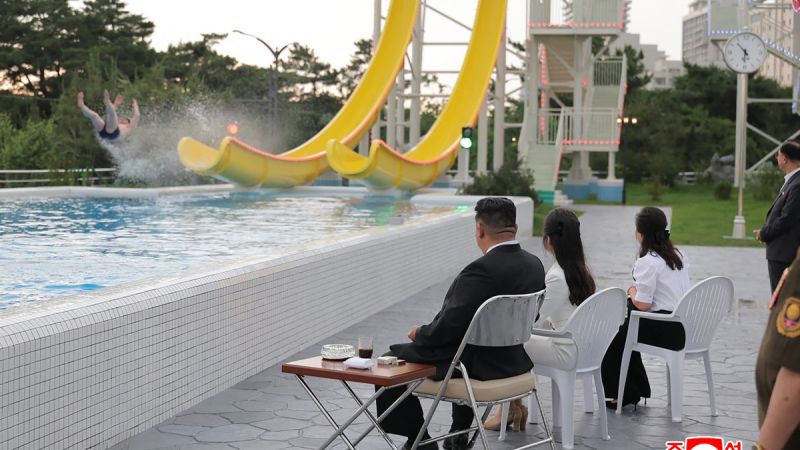North Korea has inaugurated a grand new seaside resort on its eastern coast, with President Kim Jong Un attending the ribbon-cutting ceremony of what state media is calling a “national treasure-level tourism city.” Yet questions remain over who will actually be allowed to visit.
The Kalma Beach Resort, officially known as the Wonsan-Kalma Coastal Tourist Zone, features luxury hotels, waterparks, and vast lodging facilities capable of accommodating up to 20,000 guests at a time. The launch ceremony was held on 24 June, and local reports confirm that services for domestic visitors will begin on 1 July.
According to North Korea’s Korean Central News Agency (KCNA), the development is “a proud product of the nation’s independent spirit,” and is designed to elevate the leisure lifestyle of North Koreans. The project also reflects Pyongyang’s broader ambition to develop its tourism infrastructure and, potentially, attract foreign currency in an economy hampered by sanctions and isolation.
The resort lies near Kalma International Airport, which was completed several years ago but remains largely unused due to international restrictions. Its proximity to the resort could suggest future plans to welcome foreign tourists, though current access remains unclear.
So far, no information has been provided on transport options, booking processes, or eligibility criteria, beyond the announcement that it is open to “domestic guests.” Given the country’s tightly controlled travel policies and limited internal mobility, even local access could be restricted to a select group — likely officials, elites, or government-approved participants.
International tourism to North Korea has been nearly nonexistent since the COVID-19 pandemic, with Russian nationals being among the few foreigners granted entry in recent months. These visitors are typically allowed under tightly controlled conditions, and most travel is confined to Pyongyang and a few approved sites.
Analysts remain skeptical about how much the Kalma resort will contribute to North Korea’s economy or global image.
“Wonsan-Kalma is open to just North Koreans for now, but we should not be surprised to see Russians at the resort in the not-too-distant future,” said Rachel Minyoung Lee, a non-resident fellow at the 38 North program, part of the Stimson Center, a U.S.-based think tank focused on East Asian affairs.
Lee notes that North Korea often unveils grand tourism projects that are symbolic rather than practical, raising questions about their long-term sustainability and actual economic benefit.
For now, Kalma stands as a glittering showcase of state ambition, even as the rest of the world looks on — largely from a distance.

